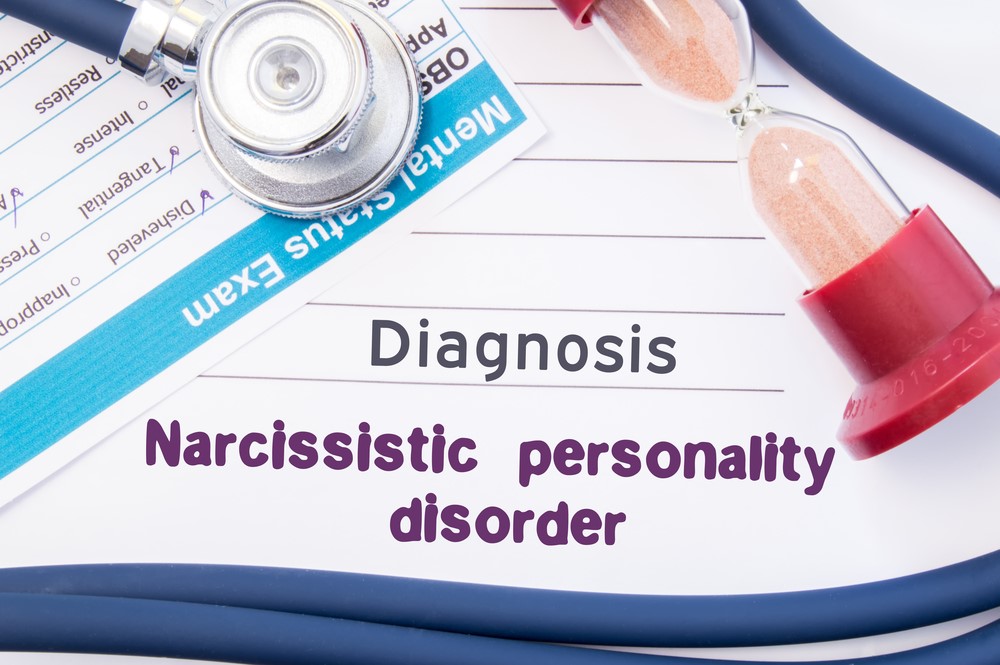Understanding Narcissistic Personality Disorder (NPD): Beyond the Myths
Narcissistic Personality Disorder (NPD) is a personality disorder affecting an estimated 1-6% of the population, characterized by an inflated sense of self-importance, a deep need for admiration, and a lack of empathy for others. Despite appearing confident, people with NPD often have fragile self-esteem that's easily threatened by criticism. There is no known cure, but long-term specialized therapy can help manage symptoms.

Narcissism is a word we usually throw around for people who take one too many selfies or double-take when they walk by a mirror or a reflective building.
But narcissistic personality disorder (NPD) is a severe psychological disorder that involves patterns of self-centered thinking, but not quite in the way we think. Instead, people with NPD typically have a lack of empathy and consideration for other people, coupled with an excessive need for affirmation, admiration, or acknowledgment.
These needs may come across as cocky, manipulative, selfish, patronizing, or demanding. This may manifest in professional, personal, and romantic relationships, leading to problems that are far more serious and diverse than someone being "a little too into" their own selfies.
To help you better understand the disorder, we're going to dive into the what, why, and how of NPD.
Table of Contents
What is Narcissistic Personality Disorder?
Narcissistic Personality Disorder (NPD) is a mental health condition in which people have an unreasonably high sense of their own importance, a deep need for excessive attention and admiration, troubled relationships, and a lack of empathy for others.
According to the Diagnostic and Statistical Manual of Mental Disorders (DSM-5), NPD affects an estimated 1-6% of the US population. It is more commonly diagnosed in men than women, though both can be affected. The disorder typically begins in early adulthood and is characterized by a pervasive pattern of grandiosity, need for admiration, and lack of empathy.
The DSM-5 diagnostic criteria require at least five of the following characteristics:
- A grandiose sense of self-importance (exaggerating achievements and talents, expecting to be recognized as superior without commensurate achievements)
- Preoccupation with fantasies of unlimited success, power, brilliance, beauty, or ideal love
- Belief that they're special and unique and can only be understood by, or should associate with, other special or high-status people or institutions
- Need for excessive admiration.
- Sense of entitlement (unreasonable expectations of especially favorable treatment or automatic compliance with their expectations)
- Interpersonally exploitative behavior (taking advantage of others to achieve their own ends)
- Lack of empathy (unwillingness to recognize or identify with the feelings and needs of others)
- Envy of others or the belief that others are envious of them
- Arrogant, haughty behaviors or attitudes
How NPD Manifests Itself

People with narcissistic personality disorder believe they are superior to others, and these beliefs are typically not founded on any factual basis. They may try to associate with other people whom they view as unique or gifted, which can create a narcissistic feedback loop.
These associations with other "unique" people, whether real or perceived, boost narcissistic individuals' self-esteem, which is usually fragile or damaged in some way. People with NPD seek attention to receive external feedback or 'proof' that others think highly of them.
Individuals with narcissistic personality disorder have difficulty handling even the most constructive criticism and are often disproportionately humiliated or empty when they experience an "injury" in the form of criticism, rejection, or defeat.
The most commonly used self-report measure for narcissism is the Narcissistic Personality Inventory (NPI), developed by Raskin and Hall in 1979. The NPI uses seven subscales that may help even the merely curious to understand better what defines narcissistic traits.
These seven NPI subscales include: authority, self-sufficiency (a belief that you've achieved everything on your own), superiority, exhibitionism, exploitativeness, vanity, and entitlement.
All of these strands connect to highlight a disturbing underlying theme in NPD: most narcissists strive for self-promotion and accolades, which are inherently isolating, while longing for inclusion and acceptance of a more basic and intangible variety, which is typically antithetical to narcissistic behavior.
In short, narcissism is often the exact opposite of its pop culture definition. Even though we are taught that narcissism is an excess of self-love, it is typically an external-facing coping mechanism for low self-esteem or feelings of low self-worth.
Author Elan Golomb helpfully puts it this way:
They [narcissists] unconsciously deny an unstated and intolerably poor self-image through inflation. They turn themselves into glittering figures of immense grandeur surrounded by psychologically impenetrable walls. The goal of this self-deception is to be impervious to greatly feared external criticism and to their own rolling sea of doubts.
Delusions of Grandeur

Narcissistic people are typically resistant to changing their behavior because of their intolerance for criticism. Instead of hearing even genuine concern about how their behavior is affecting them, narcissists prefer to turn the blame on others.
People with NPD are often extremely sensitive and view even concerned and caring input as personal attacks, which ultimately leads even friends and relatives to generally assuage the narcissist's behavior instead of offering feedback that results in anger or coldness.
More in line with cultural perceptions, grandiose thinking is typically a defining characteristic of narcissistic personality disorder. Instead of typical vanity, grandiosity is an exaggerated or unrealistic sense of superiority that leads narcissists to believe that they are unique and cannot be understood by average people. These delusions of grandeur make it difficult to reason with narcissists because, typically, they think that most of their friends are not in the special or unique social circle that they belong to, and thus that they don't understand them.
People with delusions of grandeur typically believe themselves to be exceptional in ordinary circumstances. You can almost invariably envision the type of person who demands to speak to a manager after the most minor inconvenience or mix-up. These individuals often go on self-righteous tirades about how they won't stand for rather average errands or wait times, typically because they perceive themselves as far more exceptional than they actually are.
Author Melissa Smith states it this way:
Since reality doesn't support their grandiose view of themselves, narcissists live in a fantasy world propped up by distortion, self-deception, and magical thinking. They spin self-glorifying fantasies of unlimited success, power, brilliance, attractiveness, and ideal love that make them feel special and in control. These fantasies protect them from feelings of inner emptiness and shame, so facts and opinions that contradict them are ignored or rationalized away. Anything that threatens to burst the fantasy bubble is met with extreme defensiveness and even rage, so those around the narcissist learn to tread carefully around their denial of reality.
The 5 Types of Narcissists

In 1996, a psychologist named Theodore Millon identified and defined five different types of narcissistic behavior as part of his theoretical framework. It's important to note that Millon's typology is a conceptual framework, not an official DSM diagnostic classification system. Any individual with narcissistic personality disorder may display zero, one, or multiple of the following behavior types:
| Type | Key Characteristics | Behavioral Patterns |
|---|---|---|
| Unprincipled Narcissist | Exhibits antisocial tendencies and acts fraudulently | Often exploits or deceives others to raise their own relative standing |
| Amorous Narcissist | Displays attention-seeking behaviors, often romantic or relational in nature | Desires to gain affection for affection's sake, not to satisfy a more personal human need or connection |
| Compensatory Narcissist | Displays passive-aggressive and avoidant tendencies | Acts out a desire to alter one's own social standing to others or to oneself |
| Elitist Narcissist | Closest to the pure definition of a narcissist | believe themselves superior to all others and act in ways that indicate they are convinced of their own elevated social standing, even if it is pure delusion |
| Fanatic Narcissist | Less commonly discussed variant | Exhibits extreme, obsessive behaviors often directed toward maintaining their perceived superiority |
These variations of narcissism are relatively recently defined and not always used in the medical realm. Still, they can help the observer parse through behavior that may not strictly align with traditional definitions of narcissism but that still fits an overall pattern of narcissistic behavior.
Warning Signs and Symptoms
Recognizing the warning signs of NPD can be challenging, especially since many behaviors may seem like simple confidence or self-assurance at first. However, there are distinct patterns that differentiate clinical NPD from healthy self-esteem:
Interpersonal Red Flags:
- Consistently exploits or takes advantage of others without remorse
- Shows little to no genuine interest in others' feelings or perspectives
- Becomes enraged, humiliated, or deeply wounded by even minor criticism
- Expects special treatment and becomes angry when not given preferential consideration
- Frequently belittles or looks down on people they perceive as inferior
Behavioral Patterns:
- Dominates conversations, steering topics back to themselves
- Exaggerates achievements and talents beyond reality
- Has difficulty maintaining long-term relationships due to exploitative behavior
- Reacts with rage or contempt when faced with defeat or setbacks
- Shows patterns of idealizing and then devaluing people in their lives
Helping Those With NPD

A key difficulty in successfully dealing with narcissistic personalities is that people with NPD don't like hearing anything negative about themselves, especially not that they are selfish or that anyone perceives them that way.
Because narcissism is a complex disorder that is typically associated with low self-esteem and a disconnect with reality, it is unlike many psychological disorders where those suffering ultimately want or appreciate treatment, even if the initial "intervention" is received defiantly or reluctantly.
Narcissists struggle with hearing that they are anything other than perfect, and the suggestion that they may have a relatively major personality disorder is a devastating blow that will likely be met with further denial, delusions, or even rage.
Instead of trying to suggest to narcissists that they may be struggling with a named disorder, concerned parties should consider methods that play into typical narcissistic behaviors. Consider suggesting minor improvements to enhance their success or standing. Additionally, connect them with other respected individuals in the community who may provide the social currency they desire, while also directing them towards treatment or counsel.
For Family Members and Loved Ones:
If you're dealing with someone who has NPD, it's essential to protect your own mental health while also being supportive where possible. Set clear boundaries and stick to them. Don't expect the person to change quickly or easily. Consider seeking support from a mental health counselor or therapist for yourself to develop coping strategies.
Treatment Options and Professional Help
While NPD is challenging to treat, various therapeutic approaches have shown effectiveness when the individual is willing to engage in treatment:
Evidence-Based Therapies:
- Schema-Focused Therapy: Helps identify and change deeply ingrained patterns of thinking and behavior developed in childhood
- Mentalization-Based Therapy: Focuses on improving the ability to understand one's own and others' mental states
- Transference-Focused Psychotherapy: Examines the relationship between therapist and patient to gain insight into interpersonal patterns
- Cognitive Behavioral Therapy (CBT): Addresses distorted thought patterns and develops healthier coping mechanisms
- Dialectical Behavior Therapy (DBT): Particularly useful for emotional regulation and interpersonal effectiveness
Psychology Today notes:
Treatment for narcissistic personality disorder can be challenging because people with this condition present with a great deal of grandiosity and defensiveness, which makes it difficult for them to acknowledge problems and vulnerabilities. Individual and group psychotherapy may be useful in helping people with narcissistic personality disorder relate to others in a healthier and more compassionate way. Mentalization-based therapy, transference-focused psychotherapy, and schema-focused psychotherapy have all been suggested as effective ways of treating narcissistic personality disorder.
Finding Professional Help:
If you or someone you know may benefit from professional help for NPD, consider these resources:
- National Alliance on Mental Illness (NAMI) HelpLine - 1-800-950-NAMI (6264)
- American Psychological Association (APA) Psychologist Locator
- SAMHSA National Helpline - 1-800-662-4357
- Psychology Today therapist finder for licensed professionals specializing in personality disorders
Professionals who work with NPD patients include clinical psychologists, psychiatrists, licensed clinical social workers, and mental health counselors with specialized training in personality disorders. According to the Bureau of Labor Statistics, mental health counselors who may work with NPD patients earn a median annual wage of $59,190 as of May 2024. Employment in the field is projected to grow as awareness of mental health needs increases.
Narcissism is a nebulous and perennially misunderstood personality disorder, and bystanders must think critically about the distinctions between Hollywood (or Greek myth) narcissism and the clinical definition, as they are not necessarily similar. Truly helping those with NPD means communicating in ways that make sense to them, while also being careful not to let them be manipulative or overly aggressive.
Frequently Asked Questions
Can narcissistic personality disorder be cured?
There is no known cure for NPD, but symptoms can be managed and improved with long-term psychotherapy. Treatment focuses on helping individuals develop healthier relationship patterns, more realistic self-perceptions, and better emotional regulation. Success requires the individual's willingness to engage in treatment, which is often the biggest challenge.
What causes NPD?
The exact causes of NPD are not fully understood, but research suggests a combination of genetic, environmental, and neurobiological factors. Early childhood experiences, particularly involving excessive praise, criticism, neglect, or trauma, may contribute to NPD development. Having a parent with NPD or other personality disorders may also increase risk.
How is NPD diagnosed?
A licensed mental health professional diagnoses NPD through a comprehensive psychological evaluation. This includes detailed interviews about symptoms, thought patterns, and behavior history. The clinician uses DSM-5 criteria and may also gather information from family members or partners to understand interpersonal patterns.
Is narcissism the same as NPD?
No. Narcissistic traits exist on a spectrum, and many people display some narcissistic behaviors without having NPD. NPD is a clinical diagnosis requiring a pervasive pattern of grandiosity, need for admiration, and lack of empathy that causes significant impairment in relationships and daily functioning. Occasional narcissistic behavior doesn't constitute a disorder.
Can people with NPD change?
Change is possible but difficult. People with NPD can develop more insight and healthier behaviors through sustained therapy, but they must first acknowledge they have a problem, which runs counter to the disorder itself. The prognosis is better when treatment begins earlier and when the individual has some motivation to change, even if this motivation is initially self-serving.
How do you deal with someone who has NPD?
Set and maintain firm boundaries, avoid taking their behavior personally, don't expect them to empathize with your feelings, and seek support for yourself through therapy or support groups. In severe cases where the relationship is abusive or harmful to your well-being, limiting or ending contact may be necessary. Professional guidance can help you navigate these complex situations.
Key Takeaways
- Narcissistic Personality Disorder is a severe personality disorder within the broader category of mental health conditions, affecting an estimated 1-6% of the population. It's characterized by grandiosity, need for admiration, and lack of empathy, not just excessive self-love.
- People with NPD often struggle with fragile self-esteem masked by grandiose behavior, making them extremely sensitive to criticism and resistant to acknowledging problems.
- Theodore Millon's theoretical framework identified five types of narcissistic behavior patterns: unprincipled, amorous, compensatory, elitist, and fanatic, each with distinct characteristics. Note that these are conceptual subtypes, not official DSM classifications.
- There is no known cure for NPD, but evidence-based therapies like schema-focused therapy, mentalization-based therapy, and CBT can help manage symptoms when individuals engage in treatment.
- Professional help from licensed psychologists, psychiatrists, or mental health counselors specializing in personality disorders is essential for both individuals with NPD and their family members.
- Family members and loved ones should prioritize their own mental health by setting boundaries, seeking their own therapy, and understanding that change in someone with NPD is a long, complicated process.
Interested in a Career Helping Those With Mental Health Conditions?
Explore accredited psychology and counseling programs that prepare you to work with personality disorders and other mental health challenges.
Medical Disclaimer: This article is for educational purposes only and is not a substitute for professional medical advice, diagnosis, or treatment. Narcissistic Personality Disorder is a severe personality disorder within the broader category of mental health conditions that requires evaluation and treatment by qualified mental health professionals. If you or someone you know may be experiencing symptoms of NPD or other mental health concerns, please consult with a licensed psychologist, psychiatrist, or mental health counselor. In crises in the U.S., contact the US National Suicide Prevention Lifeline at 988 or seek immediate emergency care.
2024 US Bureau of Labor Statistics salary figures and job growth projections for Substance Abuse, Behavioral Health, and Mental Health Counselors are based on national data, not school-specific information. Conditions in your area may vary. Data accessed October 2025.








